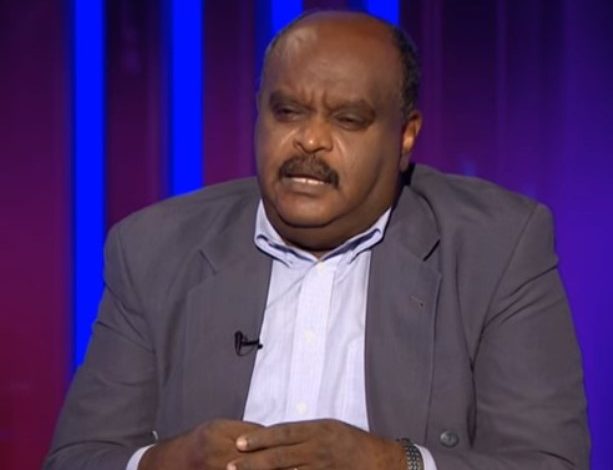The Importance of the Declaration of Principles for Stopping the War in Sudan

Dr. Al-Shafi’i Khidr
In the previous articles, we welcomed the call by the U.S. Secretary of State for a meeting between the Sudanese Army leaders and the Rapid Support Forces in Geneva in mid-month to explore the possibility of a long-term ceasefire in the country. This aligns with the desires of all Sudanese, except for the war merchants and brokers who stoke the flames of conflict for power, prestige, and petty personal interests at the expense of the nation’s welfare. I previously mentioned that the Sudanese Army’s request to hold consultations with the United States before the proposed Geneva meeting is both legitimate and necessary. The success of any meeting or negotiation between warring parties, whether military or peaceful, requires extensive prior consultations by the mediator with these parties, to agree on the nature, objectives, management, and agenda of the meeting, as well as the participating delegations, among other details. Additionally, for the proposed Geneva meeting, it is crucial to discuss the role of observers, such as Egypt and the UAE, regarding their acceptance and role in the meeting. It is also important to clarify the relationship between the Geneva meeting and the agreements made at the Jeddah platform. Although the American side has indicated that it has been in consultation with both parties and that the timing and location of the meeting were not surprising to either, attempts by the American envoy to visit Port Sudan suggest that this consultation was insufficient, potentially conducted via messages and phone calls rather than direct meetings. Another significant reason for the need for pre-Geneva consultations is the necessity of building trust between the mediator, the United States, and each of the warring parties. There is a widespread consensus on the erosion of trust, particularly between the leadership in Port Sudan and the mediator. I concluded my previous article by noting that while the American side believes its position to meet with Sudanese Army leaders at Port Sudan airport without entering the city is justified for security reasons, this stance is also defensible for various reasons by the Sudanese leadership. I suggested that this obstacle could be overcome in several ways, including holding the meeting in another country acceptable to both parties, with Jeddah being a particularly suitable choice given the necessary connection between the Jeddah platform and Geneva.
While Sudanese people are anxiously awaiting the Geneva meeting and fervently hoping it succeeds in halting the fighting, logic and experience suggest that this goal will not be achieved instantly or in a single round, despite our wishes for it. The ultimate hope is that this meeting succeeds in stopping the fighting for as long as possible, allowing for the provision of humanitarian aid and the establishment of humanitarian corridors for food, medicine, and essential needs. This remains the utmost priority that all efforts should focus on today, with an emphasis on the fact that this humanitarian file should not be politicized or compromised. Regardless of the outcome of the proposed meeting, if it occurs, I see the necessity of bringing subsequent rounds closer together and accelerating their pace. More importantly, the entire process should be based on a Declaration of Principles that is consulted with Sudanese political and civil forces. As mentioned in a previous article from September 2023, the IGAD initiative did not succeed in halting the war in South Sudan until negotiations between the Sudan People’s Liberation Movement and the Government of Salvation were conducted based on the IGAD Declaration of Principles on May 20, 1994. Although the IGAD Declaration of Principles was drafted by IGAD countries and presented ready for both parties to sign, it is crucial to emphasize that these principles were not merely the ideas of international or regional political scientists, but rather a reorganization and restructuring of the scattered political ideas of the Sudanese political movement, particularly the Sudan People’s Liberation Movement. Today, we need a Declaration of Principles to guide and govern the negotiation process to stop the war and establish foundations to prevent its recurrence or a return to the pre-war situation. I firmly believe that the Sudanese civil and political forces alone are qualified to devise this declaration. The current priority is to silence the guns and calls for civilian armament, create safe corridors for delivering humanitarian aid, ensure the withdrawal of the Rapid Support Forces from civilian areas and citizens’ homes, halt political arrests by both sides and release those who have been detained.
Once again, we differentiate between stopping the fighting and stopping the war. While ceasing hostilities and fighting is the responsibility of the warring parties, they cannot—and should not—address stopping the war in terms of engaging in the political process without risking a return to the causes of the conflict. Stopping the war, including designing and leading the political process, is the task of the Sudanese political and civil forces. Thus, all Sudanese groups, organizations, individuals, and factions opposed to the war must engage in practical activities under a unified program, covering political and humanitarian areas, and create mechanisms for coordinating with international and regional efforts to continuously pressure the warring parties for a permanent cessation of hostilities. At the same time, this program should work on laying the foundations for the transitional period post-war. Any failure to work together against the war is as grave as igniting it.
In this context, while international and regional initiatives to enforce a ceasefire and resolve the Sudanese crisis play a necessary and fundamental role, they remain supportive rather than decisive. The Sudanese people’s issue cannot be resolved from outside or through proxy by the international community.



